Dog Breed
French Bulldog
Friendliness
Exercise Needs
Health Issues
Barking Tendencies
Grooming Needs
Shedding Level


Lovable sidekick
It’s impossible not to fall in love with a French Bulldog on sight, thanks to their distinctive bat-like ears, gorgeous smooshed faces (complete with wrinkles!) and large round eyes. These pups are happiest hanging out with you, whether that’s a gentle neighbourhood stroll or an afternoon on the couch.
If you’ve got energy to spare and want a dog that’s going to come on long runs and bush hikes with you, a Frenchie isn’t going to be your ideal canine companion. Bred to be companion dogs, French Bulldogs are pocket-sized, these friendly, devoted dogs with a strong independent streak are completely loveable.
Caring for your French Bulldog
Nutrition
Choosing the right food
Every dog is unique. From the small, flat-faced Pug to the obesity-prone Labrador Retriever. ROYAL CANIN® Breed Health Nutrition is tailor-made to address the unique needs of pure breed dogs. These breed specific formulas benefit from the latest ROYAL CANIN® research on the selection of the best protein sources, unique nutrients and tailor-made kibbles.
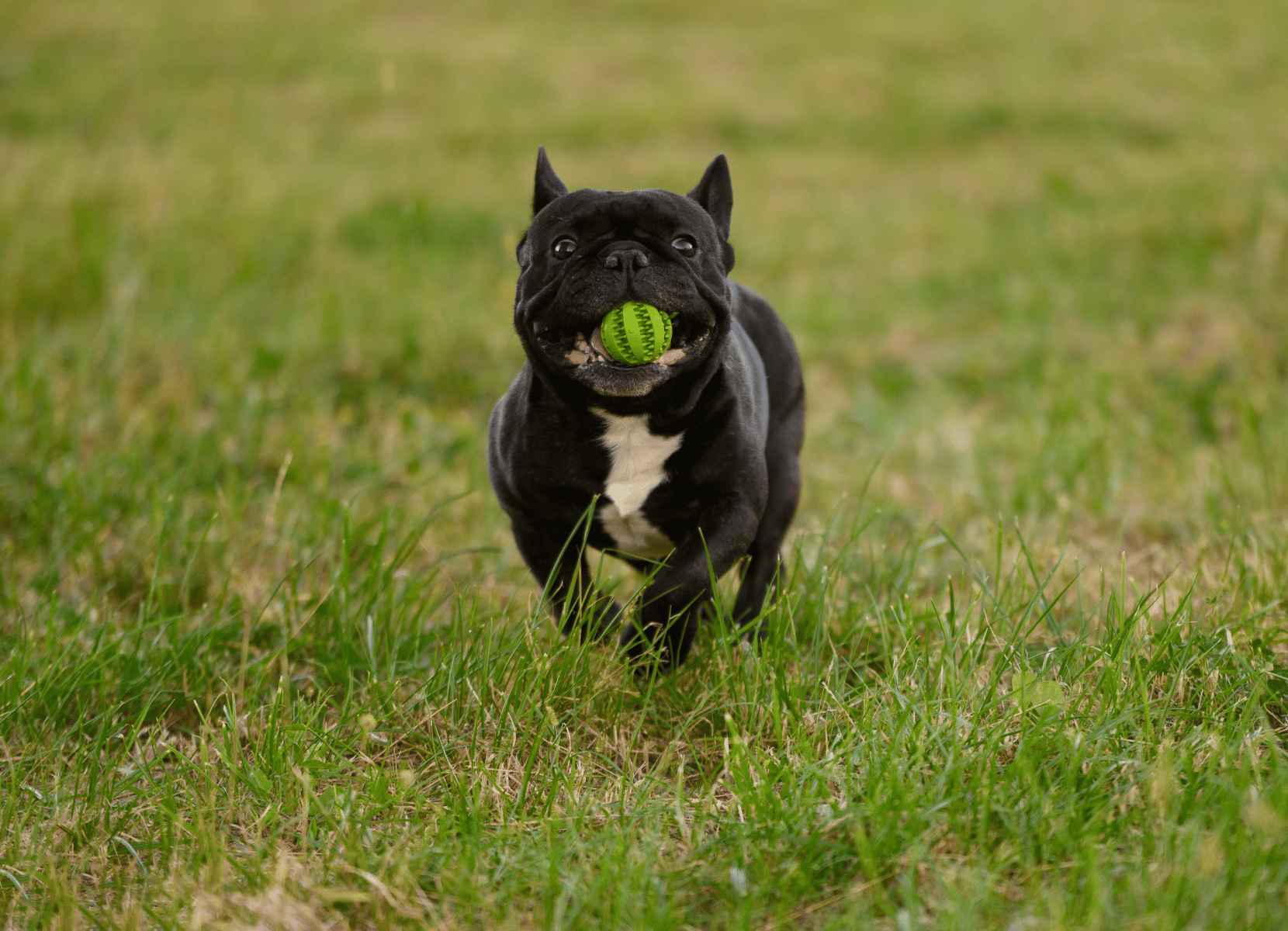
Exercising your dog
French Bulldogs were bred to be companion dogs and they love nothing more than snuggling up with you - their energy levels and exercise needs are low.
But exercise is still important, especially for their mental health. A short but brisk walk around the neighbourhood or outdoor play session every day should be enough to keep them healthy and mentally stimulated.
Be careful of when you exercise them though. They’re a flat-faced breed and prone to breathing problems so they shouldn’t exercise when it’s hot or humid.
They can't swim because of their broad chests.
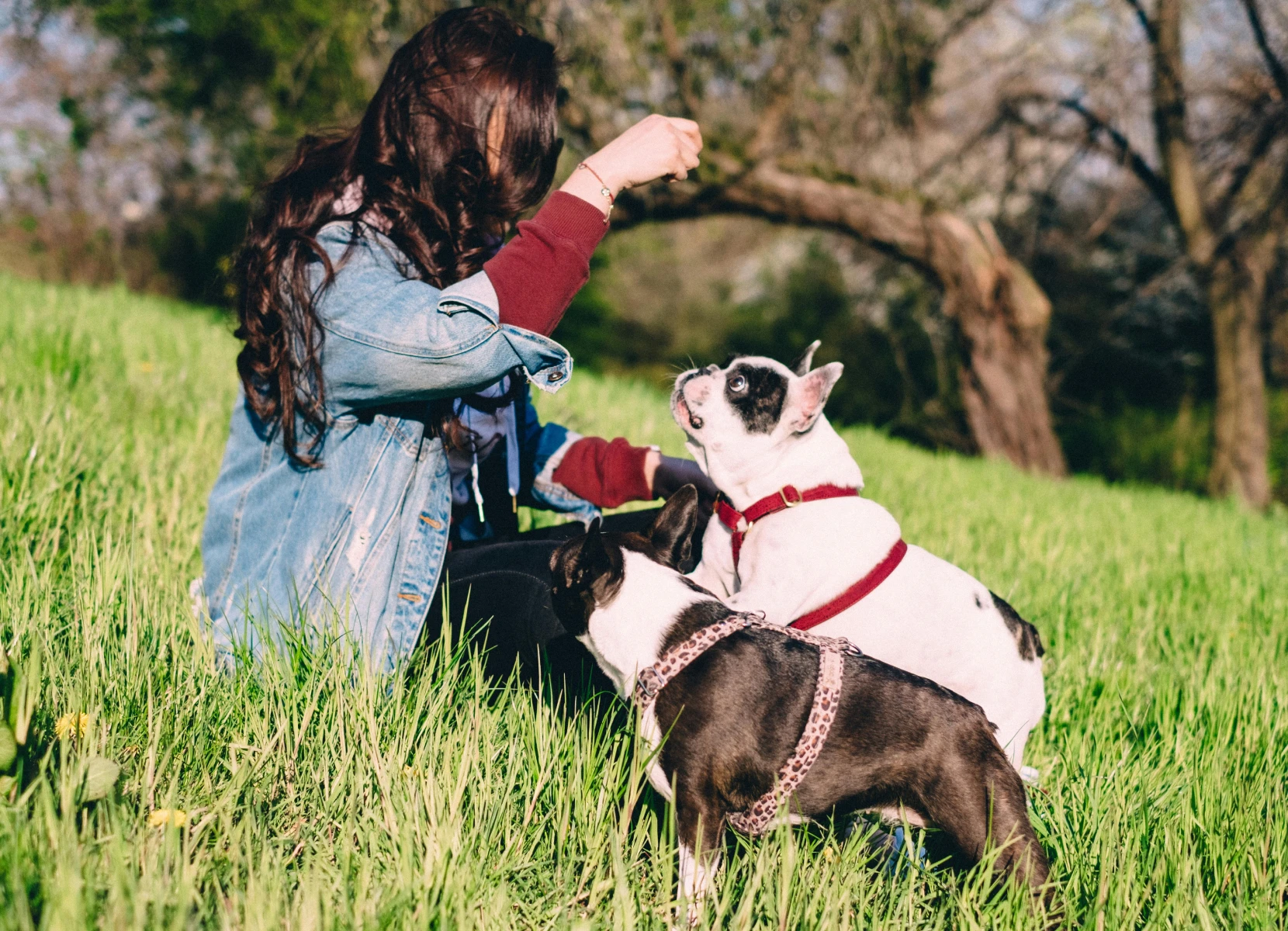
Training your French Bulldog
If there’s one thing to know about French Bulldogs it’s that they need proper training and socialisation from a young age.
Getting them used to a wide range of people, places, dogs and situations will really help them become well-adjusted, friendly adults.
Although they can be stubborn and headstrong, they’re intelligent and want to please you so training them can be fairly easy - especially because they love treats and positive attention from you!
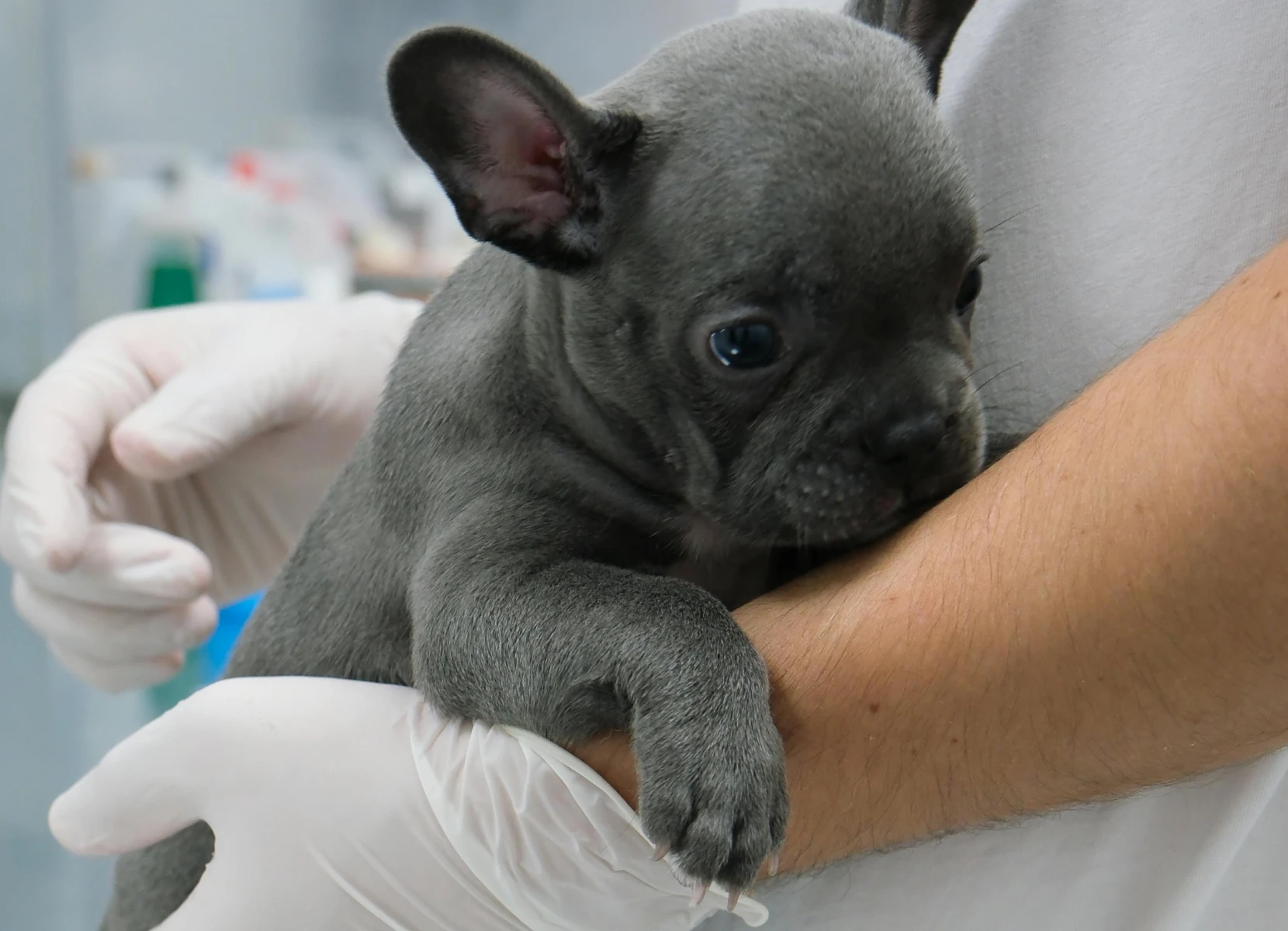
Your dog's health
To keep your French Bulldog safe, never leave them unattended near a bath, pool or water - they can’t swim because of their broad chests.
Their flat face makes them prone to breathing problems and they don’t cope well with heat or humidity. Other health issues they can experience are eye conditions and skin allergies.
Health Issues to watch out for:
Brachycephalic Obstructive Airway Syndrome (BOAS)
Eye Conditions
Skin Issues
Allergies
Spine and Orthopedic Issues
Ear Infections
Underbite
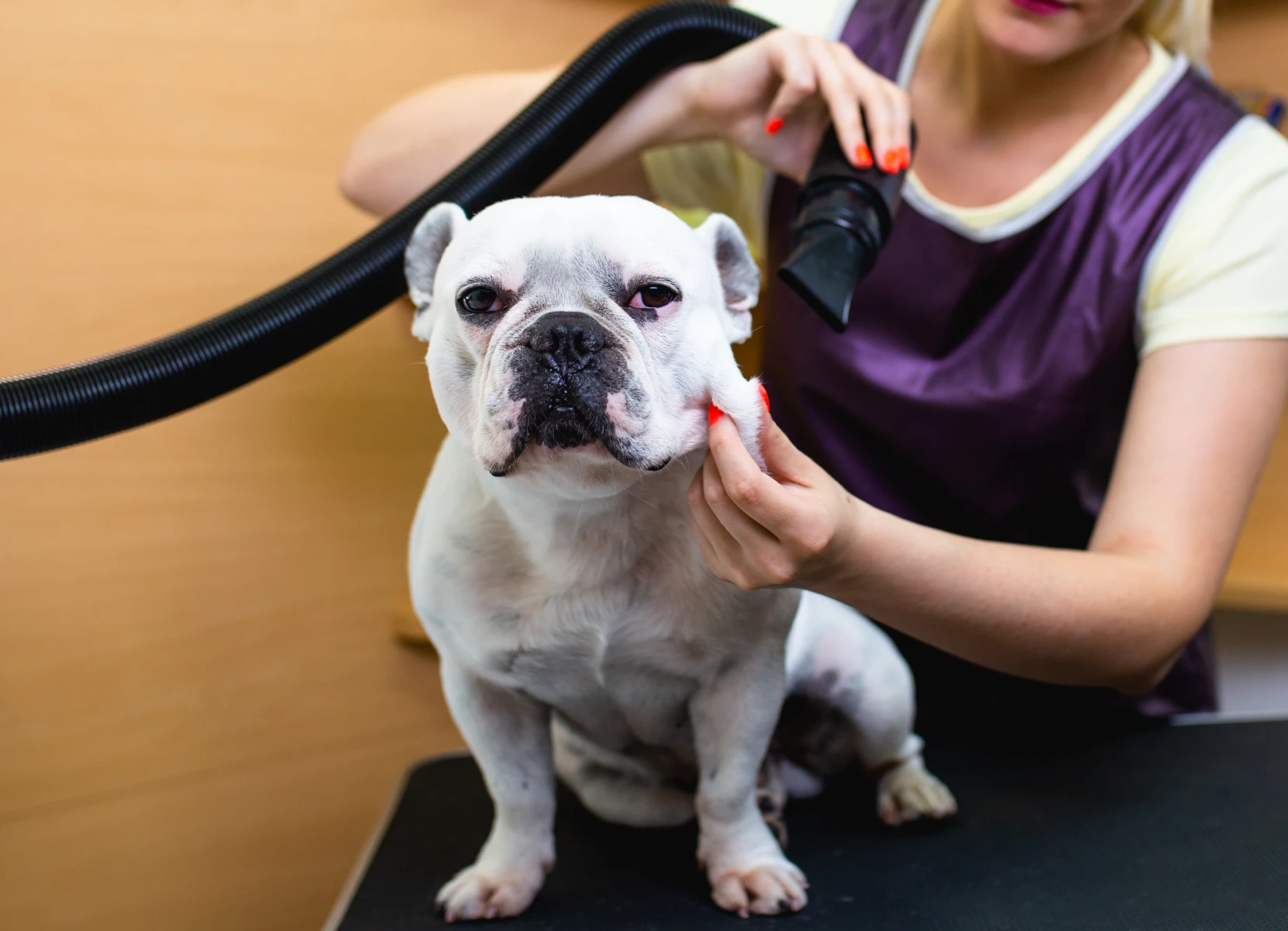
Grooming your dog
Brushing your Frenchie once a week with a brush or grooming tool is enough to keep their coat looking its best.
Bath time can happen monthly, or more often if they get really dirty. When their paws and nails are soft is a good time to clip those nails too.
Remember those adorable face wrinkles? You’ll need to clean those daily and ensure they’re properly dry to avoid any smelly bacteria building up. Eyes should be wiped once or twice daily and ears weekly.
Other daily tasks include teeth brushing. The sooner you start, the easier it’ll be.
Key characteristics of French Bulldogs
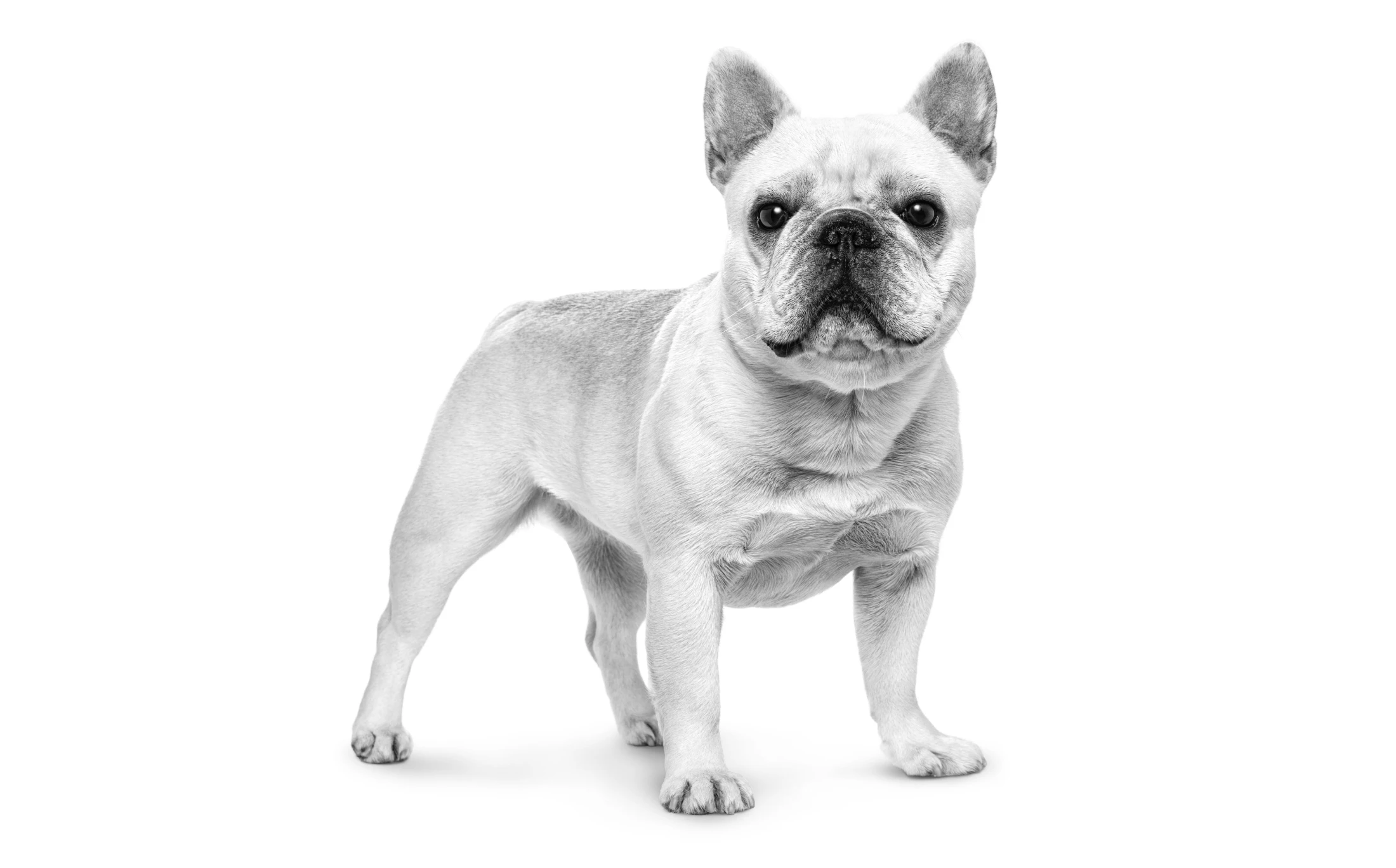
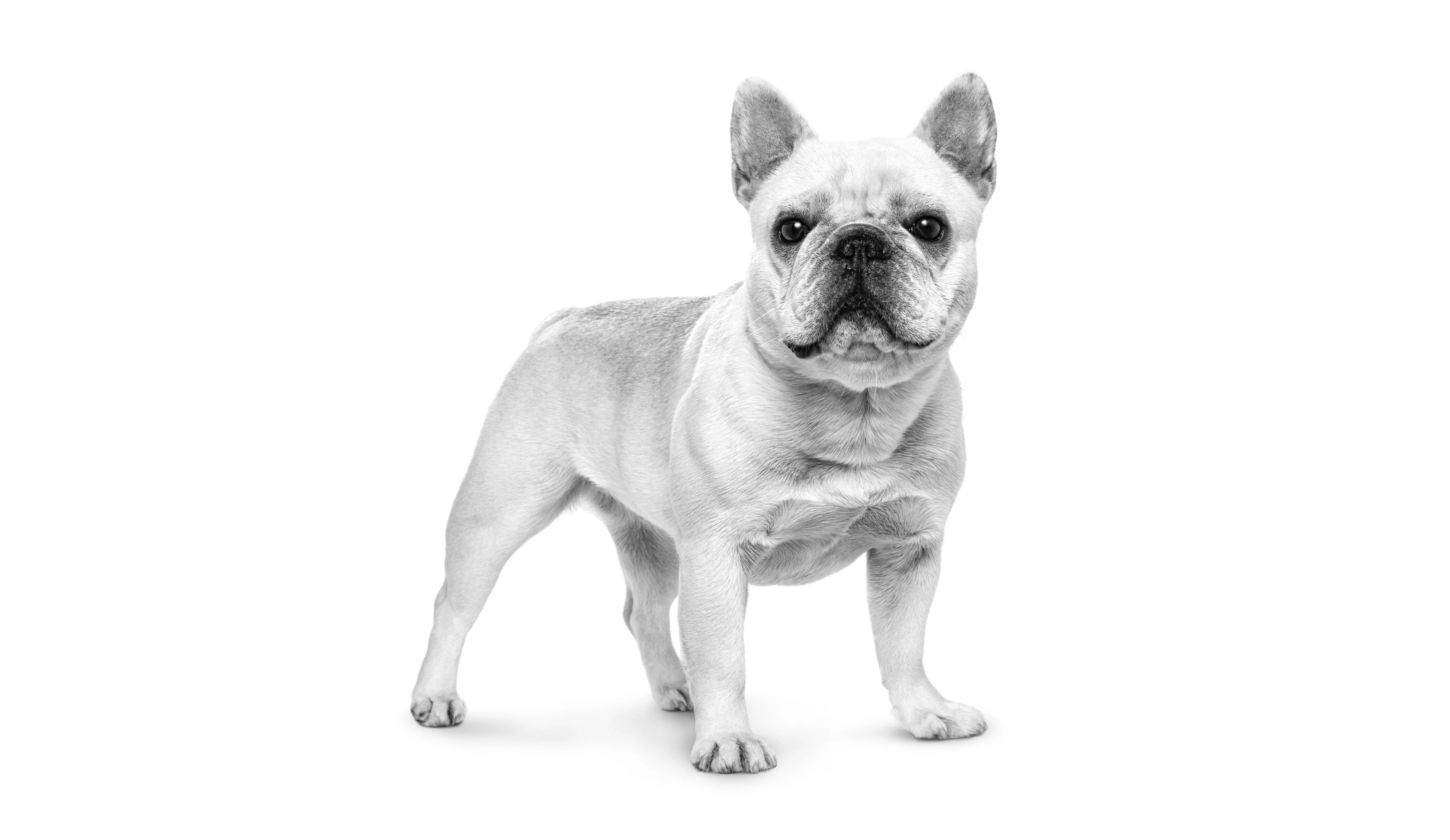
French Bulldog FAQs
French Bulldogs are lovable, low-key companions who thrive on attention and cuddles. Whether you're already a proud Frenchie parent or thinking about adding one to your family, these FAQs cover the most common questions about their lifestyle, health, and care needs.
Are French Bulldogs good with children and other pets?
Yes, French Bulldogs are typically gentle, affectionate, and get along well with children and other pets. With early socialisation and supervision, they fit right into multi-pet households.
Can French Bulldogs be left alone during the day?
Frenchies are companion dogs and can struggle if left alone for long periods. If you work away from home, consider enrichment toys, a pet sitter, or a companion animal to help ease their anxiety.
Are French Bulldogs hypoallergenic?
No, French Bulldogs are not hypoallergenic. They shed lightly and can produce dander, which may cause reactions in people with allergies.
Do French Bulldogs overheat easily?
Yes, French Bulldogs can overheat quickly due to their flat faces. Always avoid intense activity during warm weather, provide access to shade and water, and never leave them in a hot or unventilated space.
Can French Bulldogs fly on planes?
Flying can be risky for flat-faced breeds like French Bulldogs. Many airlines restrict them from cargo travel due to breathing concerns. Always check airline policies, and if possible, keep them in the cabin with you.
This FAQ section covers what you need to know to care for a French Bulldog. Their playful charm, low-maintenance exercise needs, and big hearts make them wonderful companions for many homes. With the right care and attention, they’ll reward you with endless affection and loyalty.

